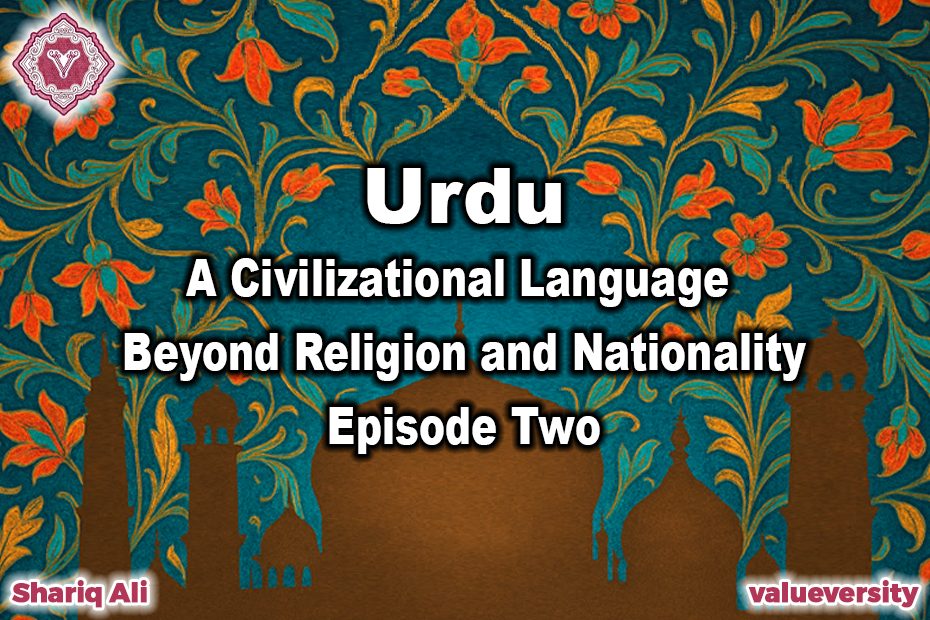Urdu: A Civilizational Language Beyond Religion and Nationality
(Episode Two)
By Shariq Ali
Valueversity
A Voice of Shared Civilization
Urdu has served as an effective medium of communication among the diverse nations, religions, and social groups of the Indian subcontinent, acting as a cultural bridge. It has not been the language of Muslims alone, but also of Hindus, Sikhs, Christians, and people from other faiths. Writers like Premchand, Sarat Chandra Chattopadhyay, Krishan Chander, Rajinder Singh Bedi, and Khwaja Ahmad Abbas used Urdu as the language of expression, highlighting humanism, social justice, and the struggles of common people in their work.
The Role of Urdu in Film, Music, and Drama
The film industry of the subcontinent, especially Bollywood, owes much of its beauty and impact to the Urdu language. Urdu dialogues, lyrics, and poetry have brought global appeal to cinema. Poets like Sahir Ludhianvi, Kaifi Azmi, Gulzar, and Javed Akhtar immortalized Urdu in the world of film music.
Similarly, radio, stage plays, and television helped raise social awareness through Urdu—a kind of awareness that transcended religious identity and spoke only the language of humanity.
A Message of Humanism and Equality in Literature
Urdu literature has consistently promoted values of resistance, progressiveness, and humanism. The Progressive Writers’ Movement raised its voice against religious bigotry, social injustice, and oppression. Writers like Fehmida Riaz, Ismat Chughtai, Saadat Hasan Manto, and Ahmad Nadeem Qasmi represented women, laborers, minorities, and the underprivileged, transforming literature into a voice of protest.
Urdu Script and Aesthetic Beauty
The Nastaliq script of Urdu—with its softness, rhythm, and poetic structure—has made it the language of hearts. This beauty is not bound to any nation, race, or religion—it is a beauty of expression that unites hearts, not divides them.
Universal Values in Poetry
The poetry of Ghalib, Mir, Iqbal, Josh, Faiz, Habib Jalib, and Bashir Badr mirrors the inner states of human beings—their desires, sorrows, hopes, and resistance. Their poetry does not represent any specific religion but reflects human emotions and universal values.
Conclusion:
Urdu Belongs to Everyone
To say that Urdu is solely a Muslim language is a historical misunderstanding. Urdu belongs to all those who love this land, who wish to express themselves with beauty, depth, and gentleness.
Urdu is a secular, humanist, and civilizational language—it does not create divisions, it builds bridges between hearts.
